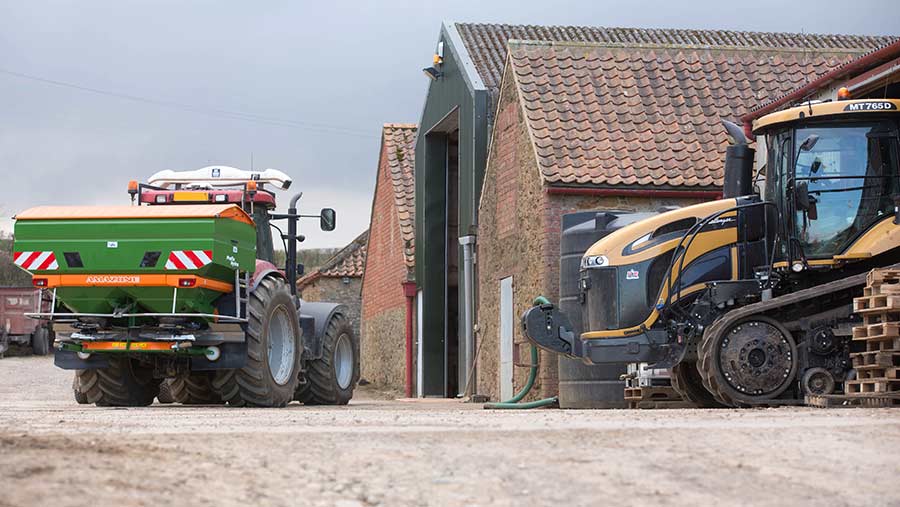Farm vehicle use – are you insured?
 © Tim Scrivener
© Tim Scrivener Farmers face having vehicle insurance claims declined in the event of an accident if full details are not disclosed to the insurer.
Many farmers will have a fleet vehicle insurance policy covering cars, commercial and agricultural vehicles, but few will have read the fine print.
It is essential the full terms of the policy are clearly defined by whoever sells the policy, to avoid shortfalls. Nigel Wellings, founding director of Farmers & Mercantile Insurance Brokers, sums up the key points:
- Make sure all vehicle use is disclosed. In most cases on a farm fleet policy, vehicles will be insured for business use, plus social, domestic and pleasure. Be clear with the business description, and disclose any other form of diversification work such as groundwork, landscape gardening, building and so on.
- Be clear if family members are using vehicles for other uses, such as travel to and from a job outside of the farm business. This will need to be disclosed.
- Be aware of where the vehicle is being used. A tractor insured for one business but being borrowed by a neighbour in connection with another, will not be covered. The borrower will need to add the tractor to their own policy for the day.
- Trailers and implements will normally be covered provided the tractor is insured comprehensively. Problems can occur if the tractor towing the implement does not have comprehensive cover.
- Joint ownership of large machinery between neighbours is becoming more common. Both business uses will need to be disclosed.
See also: New water rules for farmers in England explained
The insurance cost implications of disclosing the correct usages of farm vehicles is often negligible, but the costs associated with a claim being turned down for non-disclosure could potentially be huge.
